Scene report - Corona review
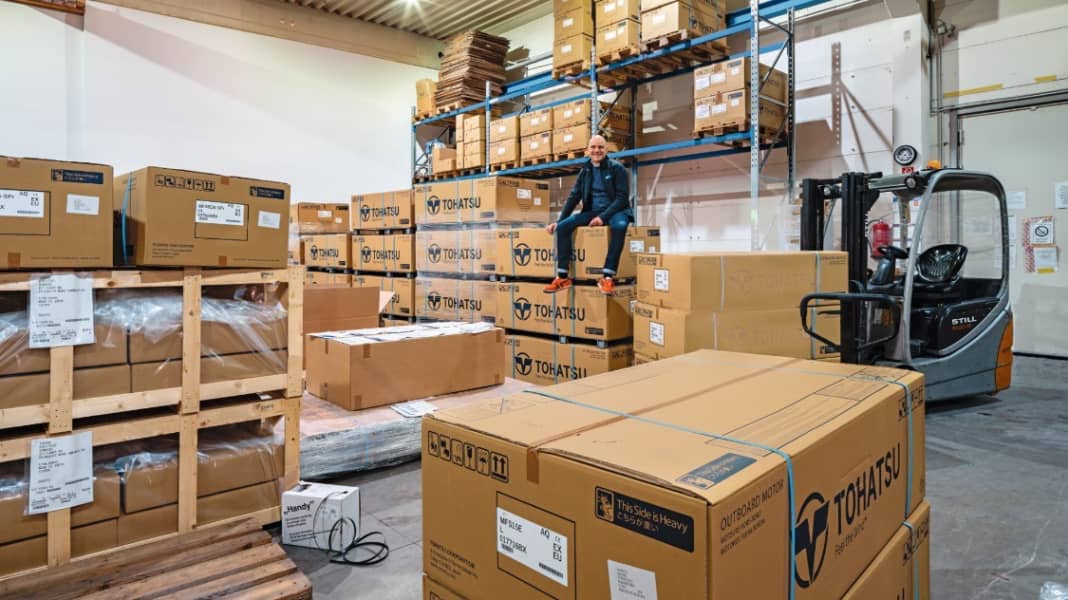
In February last year, everything seemed to be as usual. Nothing was stirring under the winter tarpaulins in the harbours. But the calm was deceptive, because an insidious wave was approaching at breakneck speed: SARS-CoV-2, a new and far more dangerous variant of the coronavirus. With the relentlessness of a natural disaster, the pandemic overtook a completely surprised society, penetrating every corner and changing almost every aspect of daily life. The boating industry, which deals with real storms by profession, also faced unprecedented challenges, as did many other sectors of the economy. To stay in the picture: They were still afloat - but the water below deck continued to rise. Even government aid could not circumvent contact restrictions or repair broken supply chains. And so the coming weeks and months became a time of completely new experiences, which were often learnt the hard way. With dedication and ingenuity, all those involved sought solutions to problems large and small, from hygiene concepts for customers and employees to the virtual exhibition hall. A lot was learnt. And even if the virus is still not history today, twelve months later, we would at least be prepared for the next wave. On the following pages, people from all areas of the industry describe how they experienced 2020 - our look back at the year when everything was different.
Shipyards
HanseYachts AG
Regular run
Successful switch to virtual trade fairs and private shows
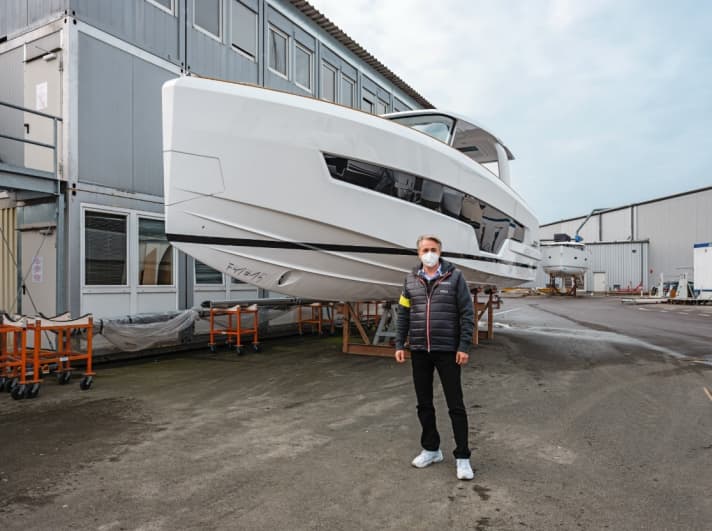
The particular challenge for German shipyards was the patchy or even missing supply chains. An interview with Dr Jens Gerhardt, CEO of HanseYachts AG (Fjord and Sealine) on the coronavirus pandemic.
BOATS: What was the biggest challenge for you?
Dr Jens GerhardtThe challenge was to protect employees in the best possible way while maintaining production. Stagnating material flows and a lack of employees due to government protective measures such as border closures and quarantine regulations also resulted in increased production costs.
BOATS: What negative effects were you confronted with?
GerhardtIn addition to the effects already mentioned above, of course, almost all boat shows worldwide were cancelled, some of which were already at an advanced stage of planning. However, we successfully switched to virtual trade fairs. Press events and photo shoots for our new boats were also only possible to a very limited extent.
BOATS: Were there also positive aspects?
GerhardtThanks to our quickly implemented in-house measures, which include the strict compartmentalisation of production areas and a greatly increased materials warehouse, we have been able to produce without interruption and also continue to develop new models. Since the summer, we have seen a real run on our yachts across all brands.
yachts, so that we are sold out until next summer.
BOATS: Which trade fairs will you be exhibiting at in 2021?
GerhardtWe will be exhibiting at all the trade fairs that are allowed to take place this year and hope that Palma at the latest will be the starting signal for a successful trade fair season.
Like many other companies, HanseYachts AG also switched to working from home. CEO Dr Jens Gerhardt not only has an office on the company premises in Greifswald, but also in his home town of Norderstedt. From there
he carries out around 60 to 70 per cent of his tasks from there. The marketing and sales departments also work from home a lot. These options are not available in the prototype department and especially in production. A well-designed hygiene concept should protect employees from Covid-19 in the best possible way. Despite all these measures, there was still an outbreak in autumn 2020. The press release states: "In November, HanseYachts AG was affected by a coronavirus outbreak for the first time at its main site in Greifswald, which was contained by the end of November thanks to extensive quarantine measures for entire departments." And how does HanseYachts AG maintain contact with the dealers? "This is currently taking place exclusively digitally, I no longer visit any of the dealers in person and am working from home 90 per cent of the time. We also held our last dealer conferences virtually, for example, we were able to reach 156 motorboat participants on 24 February," says Sales Director Maxim Neumann.
Bavaria Yachts
The cancelled trade fairs are annoying
"During the first lockdown in Europe, order intake fell rapidly to zero between March and June 2020. That was naturally a shock. But from mid-June onwards, incoming orders increased again. From July onwards, the figure rose sharply. Almost a boom. We then adjusted our production planning. Production has been running at full capacity again since September 2020. As a shipyard, we are 'almost' sold out for the current 2020/21 financial year. During the first lockdown in spring 2020, maintaining supply chains was of course a major challenge. Due to the partial closure of borders and the entire production of suppliers, our purchasing department exhausted all logistical possibilities to get everything we needed for production to Giebelstadt. The many cancelled trade fairs and the lack of opportunities to present our new boats such as the Bavaria SR41 and Bavaria Vida 33 to our customers due to travel restrictions have had a really negative impact. And even in the shipyard, communication between employees is different than before. Many are working from home," reports Michael Müller (CEO).
Hellwig boat manufactory
Two new models
The biggest challenges were "corona-compliant production conditions, material procurement (suppliers in lockdown - freight forwarders not travelling), keeping customers "in line", not having to put employees on short-time work, unusually high price increases (material purchasing), suppliers who are simply no longer available, long delivery times, employees in quarantine, generally higher sickness rates in production. We used the time to reorganise our production. The offices and warehouse have been renovated and two new boat models have been designed," says Michael Hammermeister (Managing Director).
Boat dealer
Boats Pfister
A new form of counselling
Sales staff show customers boats and accessories via video call
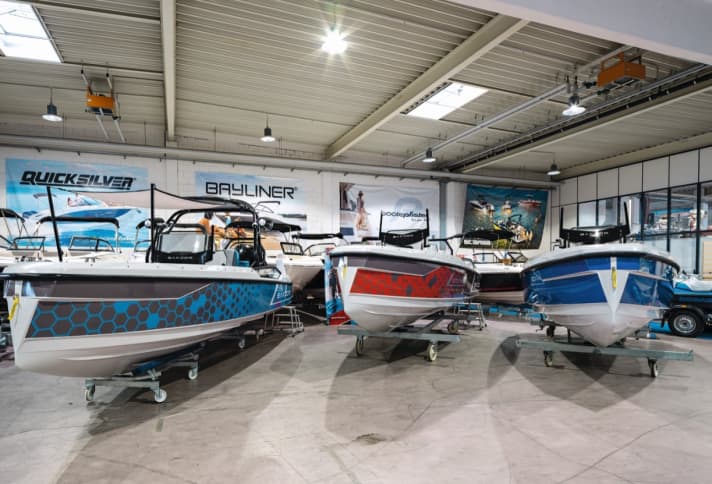
Like the other "non-systemically important businesses", boat dealers also had to close their doors during the first and second lockdowns. A particularly big problem in the first lockdown was the upcoming boat deliveries. However, there were serious differences from state to state, with Europe Marine in Rhineland-Palatinate being able to hand over new boats to its customers with appropriate precautions. Boote Pfister, on the other hand, was not, as the company is based in Bavaria (Lower Franconia) and the regulations there were more stringent.
"Sometimes it wasn't easy to explain to customers that they couldn't pick up their long-awaited boat," Joachim Pfister tells us. In March/April, Boote Pfister usually still has a lively post-fair and spring business and usually also organises the big show and test drive weekends. But that was no longer an option in 2020. Instead, sales declined. Fortunately, the big run on boats and jet skis began in May, when the first easing of restrictions was due, and by the end of September the company had recovered from the coronavirus crisis. The Friedrichshafen trade fair in September 2020 also played a big part in this. "I was sceptical at the beginning as to whether it would work," says Joachim Pfister, "but now I can say that it has worked and we have almost reached the previous year's level there." And the sales figures for the year as a whole? Fortunately, they are at a high level. The current lockdown is changing the entire customer communication process. "We have invested heavily in digital, modern and contactless sales. Customers are delighted." Some of the sales staff walk around the boats with their mobile phones and show customers the object of their delight via video call. Or they shoot videos for the customers. They have also placed a boat on a trailer in front of the company premises for a viewing, but that didn't really work as the customers usually wanted to see more boats, which is not permitted for hygiene reasons.
A hygiene concept also had to be developed for the workforce. This included changing working hours and, above all, decoupling break times to avoid having too many people in one room at the same time. "We also restructured during the coronavirus period and modernised the entire entrance area and administration. Thank goodness we were in a very good situation and all employees were able to work healthily and continuously due to the stable order situation."
The next challenge is already on Joachim Pfister's desk: "We now have to submit our pre-order for 2022.
Europe Marine
Retailer and manufacturer
"The first and currently the second lockdown are forcing us to adapt our working methods. We also had to close our doors and were only able to keep our own production running under very strict conditions. Deliveries were made in March and April 2020, but only with a limited number of people and sufficient social distancing. The biggest challenge was to make familiar processes corona-compliant while maintaining the usual productivity. The boom in demand that followed the lockdown presented us with a new challenge: having boats available for customers in good time. So far, we are fighting for every boat from every manufacturer so that we can meet the doubled demand. We have already been selling for 2022 for several months. The positive aspect is that none of our employees have fallen ill with Covid-19 and our hygiene concept is working. Both air purifiers and disinfectants in the newly created meeting rooms as well as our distancing rules and separate break times ensured that Europe Marine was available for customers as usual," say Managing Directors Peter and Robert Nürnberger.
Supplier
A. W. Niemeyer
Making the best of the situation
Inventive: With "Click & Collect", the outfitter is now able to ensure replenishment
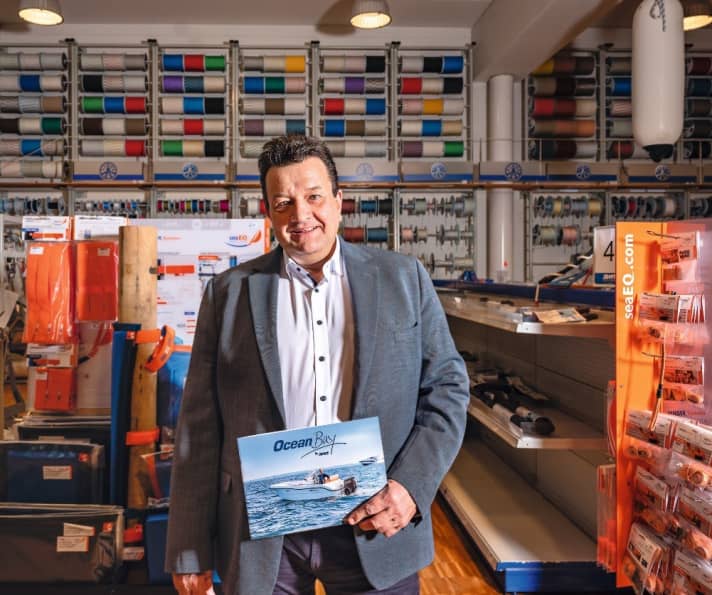
At the start of the season, tens of thousands of private boat owners flock to the maritime chandlers for advice and to buy care products for their beloved boats. But last year everything was different: harbours and winter storage facilities remained closed in many places. But even those who had their boat in an open harbour or in their own garden were faced with the worry: Will I get everything I need to have the boat ready for the start of the season? "It really hurt a lot. Our customers were looking for advice - and we had to leave them standing in front of closed doors at the start of the season," recalls Christoph Steinkuhl, Managing Director of A. W. Niemeyer, looks back. Yet 24 hours earlier, all was still reasonably well with the world: "Our first Hamburg Boat Show was a sensational success. The next day, we had no choice but to close all nine branches in Germany, Austria and Switzerland," he recalls. "That really hit you on the stomach." But instead of throwing in the towel, Steinkuhl developed a plan: "It wasn't easy, but we managed to convince the relevant authorities of our systemic relevance. After all, the water police, the THW and the fire brigade also buy from us," he explains. The success: "With an incredible team effort and a good hygiene concept, we managed to reopen our flagship store in Hamburg just 48 hours after the lockdown." During the second lockdown, the AWN team also found ways to ensure its customers had a responsible supply of boat items.
For example, through the Click&Collect service in all branches and free shipping. The AWN boss looks back positively: "Our thanks clearly go to many authorities in the respective federal states, who were available even at weekends." This made it possible to discuss possible solutions. Steinkuhl is currently planning a new edition of the Hamburg Boat Show: "Preferably as soon as possible."
SVB
Many new customers
The mail-order company SVB from Bremen generates a large proportion of its sales online. "Nevertheless, in March and April 2020 we could feel that our customers were unsettled and were not allowed to go to their boats," says Judith Stamann from SVB. "Orders were down by 30 per cent." In addition to the supply of goods, her biggest concern was the question of which countries had which restrictions on the movement of goods, as SVB receives 40 per cent of its orders from abroad. "From the summer onwards, we were able to benefit from the online boom and even gained many new customers who had previously mainly bought in retail stores. The positive trend didn't stop in autumn and winter either."
Friedrich Marx
We are positive about the future
Satisfied: Although orders failed to materialise in March 2020, the summer made up for the loss
With the closure of many shipyards and suppliers, wholesalers such as Robert Marx were also initially left with their goods and suffered a significant drop in sales.
BOATS: What were your biggest challenges in the new situation?
Robert MarxWe had to make it possible for our employees to work from home so that they were protected but could still be reached by our customers as usual. Fortunately, we had built up our IT infrastructure over the past few years in such a way that this was possible without any problems.
BOATS: What negative effects were you confronted with?
MarxWhen the lockdown came at the end of March, we had almost no incoming orders shortly before the start of the season. The warehouse was full of engines, accessories and spare parts, but demand was almost zero. In addition, we were only able to contact customers by telephone because visits were refused.
BOATS: Were there any positive aspects?
MarxAs we have a delivery time of up to five months with our suppliers, goods arrived that we didn't think we would sell. However, a cancellation was not possible as the goods were already at sea - fortunately, because from mid-May onwards, things really took off. We then had a regularly high order intake, which had an extremely positive effect on outboard sales and the corresponding accessories. Apparently we had the same effect in boating as the bicycle dealers: business was characterised by what was available for delivery. We are assuming that the many new customers who started water sports in 2020 will stick around for the long term and generate additional new customers. We are very positive about the coming period.
Torqeedo
A thoroughly good year
The year also left its mark on the leading manufacturer of electric motors. "There were some delivery bottlenecks from suppliers, and some projects could only be finalised after a delay due to the travel restrictions," says Stephan Bayerle from Torqeedo, looking back. "Overall, however, it was a very good year for us because the leisure market developed very positively." Of course, there were also some challenges: "When it came to acquiring new customers, it was of course more difficult for us to provide purely online advice than on site," says Bayerle. Torqeedo therefore wants to attend all major trade fairs in 2021, if possible. "However, we have also proactively developed our own digital format for presenting our new products."
Charter
Le Boat
Domestic holidays clearly in vogue
The joy of travelling: Despite all the restrictions, Germany's most popular inland waterway is coming into focus precisely because of coronavirus
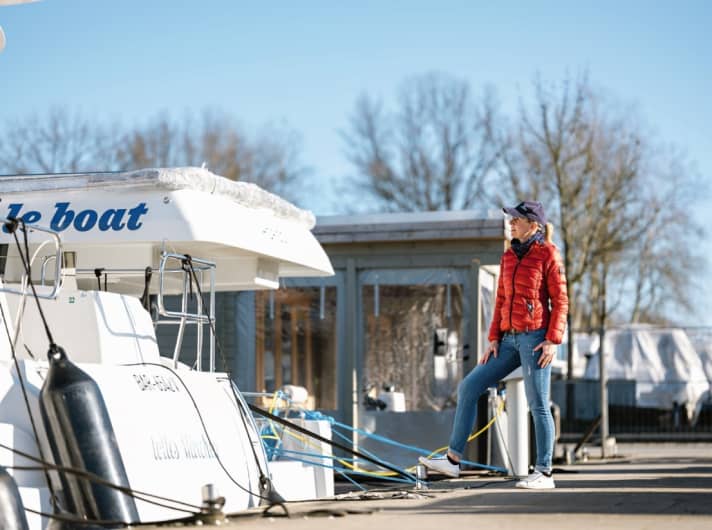
The Wolfsbruch marina near Rheinsberg had lain dormant for weeks in spring 2020. When the redemptive news finally came in May that chartering was allowed again, the then newly appointed base manager Doreen Block suddenly had her hands full. The employees were brought out of short-time working to get the 70 boats ready for the season in the shortest possible time. Cross-border travel had become unpredictable. What's more, a boating holiday is corona-compliant per se. Two convincing arguments for thousands of Germans who travelled to the Mecklenburg Lake District during the 2020 coronavirus season.
"As soon as we got the news that we were allowed to rent out again, the booking enquiries for our German bases went through the roof. Unfortunately, we were unable to meet the high demand because the peak season was already almost fully booked. But the season has shifted noticeably backwards. People were hungry for a holiday and happy to get a boat at all, even if it was only in October."
Nevertheless, 2020 was not the best year for the Europe-wide charter company with bases in a total of nine countries. "Of course, we were able to compensate for some of the losses with the strong summer and autumn business in Germany, but border closures, travel warnings and budget restrictions had a major impact on the Europe-wide charter business overall," weighs up Doreen Block. The base manager reports that almost 100 per cent of guests came from within Germany due to the travel restrictions. "Previously, perhaps 60 to 70 per cent of our guests were from Germany. We used to have a lot more guests from abroad. That's all shifting now. And this trend is also continuing with the incoming bookings for 2021."
The charter company has responded to the change in booking behaviour by transferring boats from foreign bases to Germany. In April, Le Boat will open a fourth base in Fürstenberg in order to adapt to the increased local demand. "We don't believe that this is just a temporary, corona-related trend. We assume that the trend towards individual holidays in Germany will continue in the coming years," says Block. "And now we are better prepared than last spring. We don't have anyone on short-time work and the boats are being prepared in good time. We are ready."
Yacht charter Schulz
With commitment to success
"If we hadn't had to close due to the rising numbers again, we could have rented out until November," says Steffen Schulz from Yachtcharter Schulz in Waren/Müritz. Due to the long season and the high demand, the company had 20 per cent more turnover last year - with a high level of commitment: "Our employees were at their limit," says the Managing Director. It was also more difficult than usual to obtain spare parts in the event of damage and to quickly get the urgently needed boats ready for hire again. The trend towards more "holidays in Germany" is clearly noticeable, says Schulz. "This is a great opportunity for the region."
Tom Sawyer Tours
Müritz instead of Dubai
Demand was also high for adventure raft rental company Tom Sawyer Tours: "We had to employ a person who only had to deal with cancellations," reports Managing Director Johannes Wittkopf. It was noticeable that the clientele was much more diverse than in previous years: "People came to us who might otherwise have booked a five-star holiday in Dubai," he says. The response was positive: "Many are surprised at the beautiful places we have to offer."
Trade fairs
Boat & Fun Berlin
A rollercoaster of emotions
Corona not only acts as a brake, but also as an accelerator.r
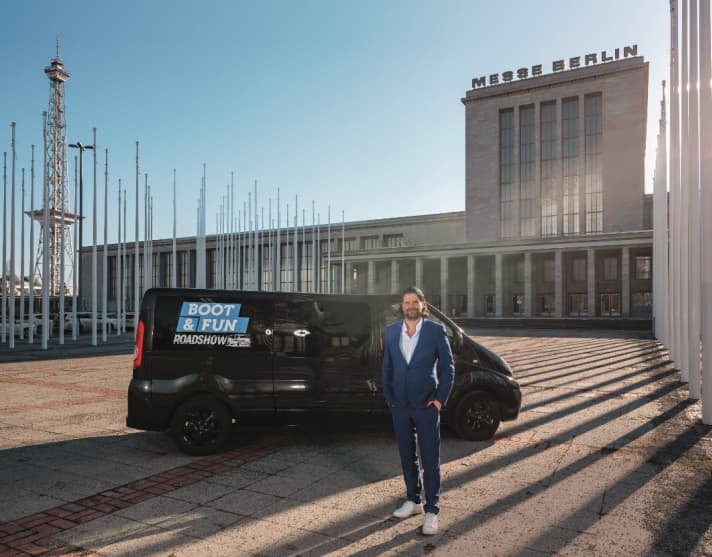
Planning reliability is the be-all and end-all in the trade fair business, for organisers and exhibitors alike. A prerequisite that is like squaring the circle in times of a pandemic. Daniel Barkowski from Messe Berlin can tell you a thing or two about it. He is the project manager for Boot & Fun inwater in Werder (Havel) and Boot & Fun in the halls under the Berlin Radio Tower. He and his team have been working towards these two events since January. The first year of the coronavirus has been an emotional rollercoaster ride for the trade fair organisers from the capital, characterised by many ups and downs. "We had a great feeling for 2020," Barkowski recalls of the last boot Düsseldorf, where talks are traditionally held with long-standing and potential new exhibitors. Both Boot & Fun versions, the dry and the wet version, met with a positive response. "We travelled back to Berlin with a swelling chest." But when ITB Berlin, the leading trade fair for the global tourism industry, was cancelled shortly before it was due to begin on 28 February, Barkowski's team was also aware of the pandemic. "Suddenly, every conversation with exhibitors centred on coronavirus. But we were so far away with inwater (planned for the end of August, editor's note) and the indoor trade fair (November). If someone had told me back then that Boot & Fun wouldn't be taking place, I wouldn't have taken them seriously." But before the frustration over the cancellation of Boot & Fun Berlin in the face of the second corona wave, there was exuberant joy. When trade fairs were allowed again at the beginning of September - with restrictions and a hygiene concept, of course - a fantastic Boot & Fun inwater in Werder (Havel) heralded the comeback of boat shows in Germany (BOOTE 11/20). "The biggest competitors were up in arms," says Barkowski, describing the euphoria among the exhibitors. The numerous visitors were also aware of how much they had been longing for such an event. After the first indoor water sports exhibition, Interboot in Friedrichshafen, was successfully held two weeks later, Barkowski was sure that Boot & Fun Berlin would also be a success, but was mercilessly thwarted by the sharp rise in infection figures in autumn. But instead of moping after the cancellation, the organisers responded with #BOOTschaften: a marketing campaign that enabled exhibitors to showcase boats and other products that they would normally have brought to the Berlin exhibition grounds in short films on the trade fair website (www.boot-berlin.de) as well as on Facebook and Instagram. And that's not all: as soon as the second lockdown is over, Barkowski and his crew will go on tour to the exhibitors with the "Boot & Fun Roadshow" to showcase them online again. Let's face it, corona only ensures social distancing, the virus also brings people together.
Trade fair year 2020
What took place, what didn't
Before the first lockdown: A fantastic boot Düsseldorf (1900 exhibitors from 71 countries, 250,000 water sports fans from 106 countries) was followed in Germany by the record-breaking Stuttgart holiday trade fair CMT, the Munich travel and leisure trade fair f.re.e, the Leipzig water sports trade fair Beach & Boat and, last but not least, the Hamburg Boat Show by AWN.
Cancelled: Magdeboot in Magdeburg was initially postponed and later cancelled altogether. The Ultramarin Boatshow in Kressbronn, the Hamburg ancora Yacht Festival in Neustadt in Holstein, the Flensburg Boat Show and Boot & Fun Berlin were also cancelled due to the coronavirus situation.
Before the second lockdown: Only Boot & Fun inwater in Werder (Havel) and Interboot Friedrichshafen made it through.
Associations
DBSV
Communicator during the crisis
Optimally networked At the German Boat and Shipbuilders' Association, good advice was not expensive
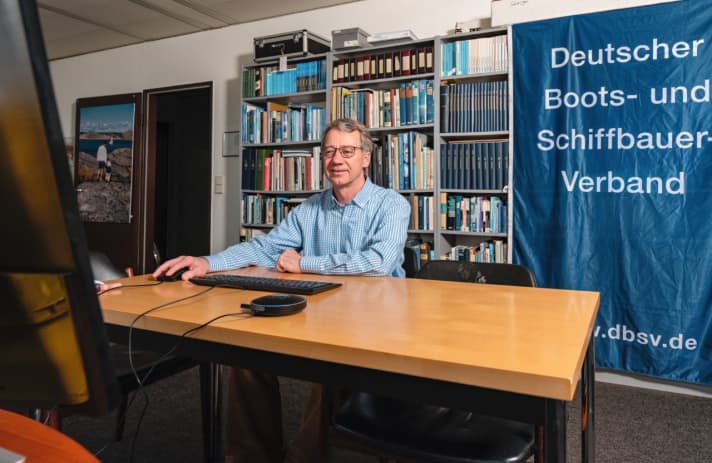
Industry associations are particularly important in times of crisis. Especially in one that the world has never seen before and for which no one was prepared: the coronavirus pandemic. This also applies to the German Boat and Shipbuilders' Association (DBSV) with its 430 or so member companies from all maritime sectors. The DBSV first had to adjust itself to the sudden "new normality" before it could provide the information that the industry so urgently needed, whether it was about financial aid, questions about short-time working allowances or travel restrictions, whether within Germany, Europe or worldwide. The DBSV still does this today, accessible to everyone beyond the association's borders on its homepage (www.dbsv.de) and benefits from being part of a large association itself: the German Confederation of Skilled Crafts (ZDH). Whenever a member company needed to solve a problem, DBSV Managing Director Claus-Ehlert Meyer could always count on the expert advice of the ZDH. In order to be able to work and communicate safely and effectively during the pandemic, he and his colleagues Brigitte Barein and Claudia Zamboni first had to make the office in Hamburg corona-proof. Everyone has their own office. Meyer turned his into a communication centre, which he calls "Studio 1": a large monitor, small computer and, in addition to the managing director, the DBSV flag prominently displayed on the bookshelf in the camera's field of vision. "Like many others, we had to learn how to use video conferencing," says Claus-Ehlert Meyer. "It's now part of everyday life." Whether it's general meetings with 60 participants or weekly meetings with the Executive Board, Meyer keeps Zoom running for a while afterwards. As it turns out, many participants want to continue chatting after the official part of the meeting. Even though personal encounters should still be avoided as much as possible due to the risk of infection, there is more communication than in the time before coronavirus. According to Meyer, the time spent preparing for trade fairs was not less, but more, even if they did not take place in the end, such as Palma, Monaco or the SMM.

